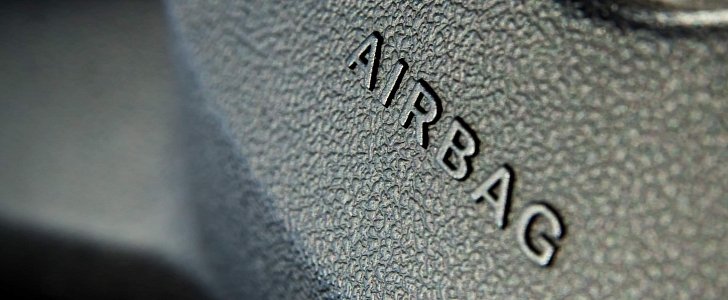Four automakers are still selling cars with Takata airbags that will have to be recalled, a report from the U.S. Senate Commerce Committee said.
According to the report, Toyota, Fiat Chrysler Automobiles, Mitsubishi, and Volkswagen are selling some new cars with potentially defective airbag inflators. We are talking about Takata airbag inflators with ammonium nitrate and with insufficient desiccant.
The latter is a drying agent, which is supposed to prevent humidity from forming inside the inflator. Depending on outside temperature, as well as fluctuations in temperature, moisture could form inside the inflator and cause it to fail.
As previously explained, the airbag inflators without a drying agent are not immediately dangerous, as they have to be exposed to long-term high humidity to become hazardous.
Until then, cars with these inflators are safe to drive, and are better than older models without this many safety features, says the NHTSA. Their next step is to prioritize recalling vehicles that were sold in high-humidity areas, and the oldest cars should be fixed first.
Unfortunately, there is no clear indication of how much time can one of these airbag inflators function properly after being exposed to humidity. There is also the question of how long can the inflator be safe for the occupants of a vehicle that has not been exposed to high humidity.
Interestingly, the four automakers mentioned above are allowed to sell these vehicles, as long as they get recalled by 2018. The NHTSA will obligate Takata to recall all of its ammonium nitrate airbag inflators by 2019 if the Japanese supplier cannot prove that the components are safe to use.
The most concerning part about this report from Automotive News is that automakers are not required to disclose openly which are the new vehicles that are on sale today and have potentially defective Takata airbag inflators. The report also explains that car manufacturers will not have to report these details for all the affected vehicles until 2019.
The latter is a drying agent, which is supposed to prevent humidity from forming inside the inflator. Depending on outside temperature, as well as fluctuations in temperature, moisture could form inside the inflator and cause it to fail.
As previously explained, the airbag inflators without a drying agent are not immediately dangerous, as they have to be exposed to long-term high humidity to become hazardous.
Until then, cars with these inflators are safe to drive, and are better than older models without this many safety features, says the NHTSA. Their next step is to prioritize recalling vehicles that were sold in high-humidity areas, and the oldest cars should be fixed first.
Unfortunately, there is no clear indication of how much time can one of these airbag inflators function properly after being exposed to humidity. There is also the question of how long can the inflator be safe for the occupants of a vehicle that has not been exposed to high humidity.
Interestingly, the four automakers mentioned above are allowed to sell these vehicles, as long as they get recalled by 2018. The NHTSA will obligate Takata to recall all of its ammonium nitrate airbag inflators by 2019 if the Japanese supplier cannot prove that the components are safe to use.
The most concerning part about this report from Automotive News is that automakers are not required to disclose openly which are the new vehicles that are on sale today and have potentially defective Takata airbag inflators. The report also explains that car manufacturers will not have to report these details for all the affected vehicles until 2019.

